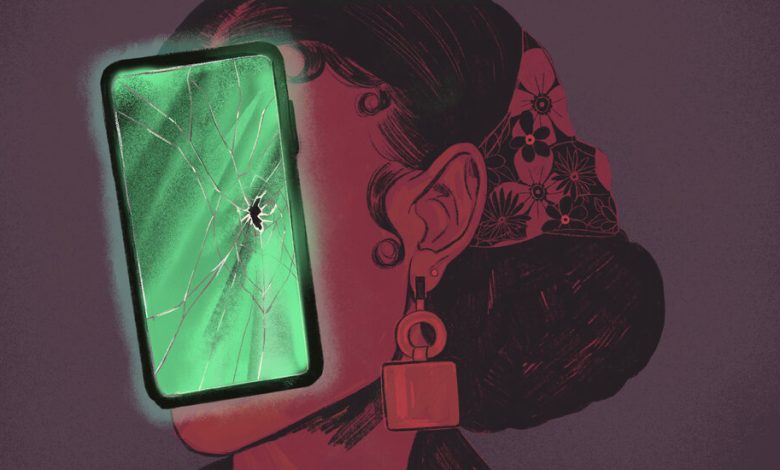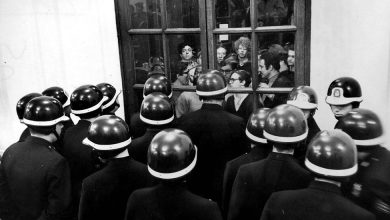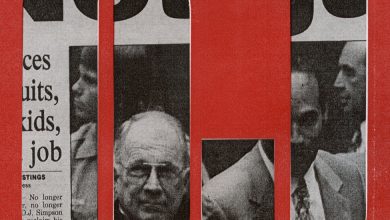A Black, Queer Hero’s Journey for the Digital Age

HOMEBODIES, by Tembe Denton-Hurst
In her sharp, charming and passionate debut, “Homebodies,” Tembe Denton-Hurst showcases an eye for the details that matter. Fashion girls are “Midwest Christian-types born-again in fuzzy pink cardigans and Dries boots.” A girlfriend’s painstaking domestic labors are described with equal parts unease and grateful relief. The impatient lunch-break Slack ping from a peevish white boss perfectly sets up the doom of the meeting that follows. It is this eye for the rhythms and textures of life — of millennial digital media, of the death by a thousand cuts offered by workplace racism, of Maryland suburbia — that makes this novel vivid and inviting. “Homebodies” is the story of a young Black woman’s quarter-life crisis as she wonders what her place in the world will be.
The novel opens on a well-calibrated set piece of suspense and disquiet. Mickey Hayward is a writer at Wave, a Manhattan-based magazine for young women that was recently acquired by a digital media conglomerate. At an industry event, she is pulled aside in a moment of perfunctory solidarity from Chelsea, one of the few other Black women at the company, who delivers bad news: Mickey’s job is in jeopardy. Nina, Mickey’s mercurial white boss, has been trying to hire Chelsea’s friend, another Black writer, to replace her. Mickey, a striver with dreams to make it big, is crushed.
Social and emotional descent follows. Mickey is fired; lashes out at her nurturing partner, Lex; spirals into an unemployment-fueled depression; and posts a barn-burning letter to Twitter calling out the entrenched racism of the media industry. The letter is met with less of a bang than a whimper (only four likes, and complete silence from her industry-girlies group chat). Conflict with Lex explodes. And Mickey, spiraling, impetuously moves out of the cozy Astoria apartment she and Lex and their cat share. Halfway through the novel, she is now the “single-ish girl sitting alone on the Amtrak,” Kelela in her headphones, fleeing to the Maryland suburbs she had abandoned for the promise of a flashy New York life.
Questions abound. Should Mickey open the Pandora’s box that is her hometown ex, Tee? How long can she hide out at her grandparents’ house, out of sight of her father, whom Mickey feels wounded by and cannot bear to disappoint with news of her firing? What should she doabout Lex, future employment, the letter discarded into Twitter’s void?
“Homebodies” juggles the many things that make a life, from work to romance to family to one’s position in the world. It calls to mind the archetypal hero’s journey: the ancient narrative template of a character who leaves home, goes on a perilous adventure, matures and, after tribulation and growth, returns transformed.
This narrative shape canonically has been the domain of men and those otherwise privileged by their societies, but “Homebodies” is concerned, from its dedication page onward, with the “girls who look and love like” Denton-Hurst: queer Black women. Denton-Hurst writes the Maryland scenes with tenderness and insight. Tee, an erstwhile high school basketball star who now works at Safeway while stunting online with a rotating cast of petite femmes, is particularly well imagined. And Mickey is a beautifully drawn protagonist: a complex young woman who wishes to be notable if not extraordinary, who lights up simply because her messy ex calls her “superstar,” who is revealed, over the course of the book, to be, well, human. Which is to say impulsive, insecure, fragile, desirous and — when it counts most — brave.
“Homebodies” contemporizes the hero’s journey, giving us a novel of love, work and becoming for the digital age. Throughout, Denton-Hurst captures the meaning of online communication, whether it be Instagram analysis, the sting of a group chat’s nonresponse or the swarm of Twitter. Mickey is attuned to all of these things, and the novel’s closing, in some ways, is a contemporary innovation — Mickey may or may not get the girl, the ending intimates, but what she will end up with is a voice that people will listen to.
Sarah Thankam Mathews is the author of “All This Could Be Different,” which was shortlisted for the 2022 National Book Award in fiction.
HOMEBODIES | By Tembe Denton-Hurst | 307 pp. | Harper/HarperCollins Publishers | $30




